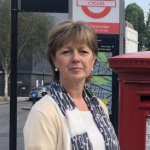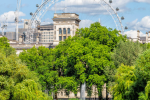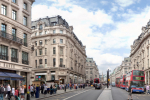
The following article, written by Westminster City Council Leader Rachael Robathan, originally published by themj.co.uk
Up and down the town centres of the country, we felt the tectonic plates move on Saturday as, after four months of being cooped up, people finally got to go out.
In Westminster, the council has paved the way for that by encouraging restaurant and pub owners to put temporary tables and chairs outside and by widening pavements and temporarily closing some roads to make popular parts of the city more pedestrian friendly.
Saturday was a promising debut, but not without its first night glitches. One street featured in news reports with pictures of densely packed crowds. But that was the exception; with new safeguards in place, Westminster will be open for business again this weekend.
The chancellor’s statement is hugely significant for councils in a number of ways – for the hospitality sector, for job preservation, green housing, and offering opportunities for the young
The significance of the summer statement for hospitality is striking. In Westminster, we have 3,700 licenced venues. This industry is a major employer, a multi-million earner, and a huge draw for the 20 million people who visit us every year.
The VAT cut to 5 per cent and the ‘eat out to help out’ schemes are vital to an industry that has been battered by COVID. When one well-known chef remarks: ‘I just want to see a queue again. Ten people in the restaurant would be enough’, you get the idea of just how bleak it has been. But there are positive signs of a recovery. On a personal note I took my daughter out for a pizza in Westminster this week and the restaurant was packed at 9pm. The restaurant staff were in masks, the condiments were pre-wrapped, but service was great and the atmosphere buzzy. This kind of positive experience gets people out and spending again.
The chancellor’s green jobs package is also important if your council has declared a climate emergency. We have committed to make Westminster carbon neutral by 2040. More Government funding will help us to decarbonise local heat supply to more than 3,500 homes, and the 2,400 new homes we have committed to deliver by March 2023 will be built according to strict environmental criteria. The chancellor’s green deal provides funding for public sector buildings, so as local authorities up and down the country adjust to new post-COVID working patterns, this is surely the time to make this environmental dividend pay.
The kick starter programme will be welcomed by councils which typically run their own programmes to support youth employment. In Westminster we have some estates with marked deprivation where levels of aspiration and career ambitions may have been limited before COVID. We desperately need to focus our efforts to ensure young people see a way out of this.
In Westminster we have a scheme called City Lions which has so far supported more than 1200 teenagers, many with work experience. These placements raise horizons. We arranged for one 15-year-old boy to spend a fortnight at a leading architects’ practice, a stint he described as ‘life changing’. I hope we can bridge from initiatives like this to the kick starter scheme.
The chancellor’s statement will help councils build that most precious but intangible commodity – confidence. After a surreal four months of lockdown, we can emerge blinking into the sunlight with hopefully a job to return to, or with Government help, the chance of our young people getting one. In a pre-COVID era, a million people passed through Westminster’s streets every day. Not all may return, but I hope those that do feel they can do so with confidence – working, visiting our attractions and eating out. In an economy driven by consumer consumption, Rishi Sunak’s measures are putting bread on the table.
Cllr Rachael Robathan is leader of Westminster City Council














